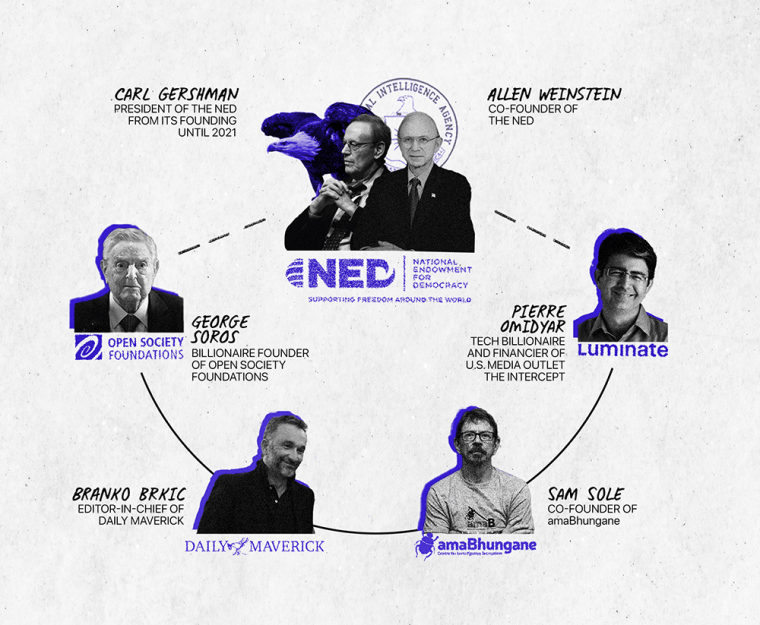More concerning, however, is the revolving door between amaBhungane staff and US and Western government-sponsored organisations. In the past decade, three of amaBhungane’s senior staff have gone on to work for such entities, primarily to monitor public and private actors in Africa:
- Vinayak Bhardawaj, former advocacy coordinator (2012-14), has gone on to work for Africa Check, which is partnered with the US Embassy in South Africa to “tackle misinformation and disinformation in the media.”
- Karabo Rajuili, former advocacy coordinator (2015-19), has gone on to work for Open Ownership, a corporate ownership watchdog founded by the UK government which focuses on Africa and Asia.
- Cherese Thakur, former advocacy coordinator (2020-22), has subsequently joined the corruption reporting team at the South African office of the German government’s international development agency, GIZ.
Beyond this, amaBhungane’s fellowship programme has frequently served as a hub to train US government-affiliated journalists in the region. Since 2015, at least 15 amaBhungane fellows have been directly tied to US government programmes, including Voice of America staff, members of US embassy-partnered media organisations, US State Department fellows, and employees of the US government-sponsored think tank Freedom House. amaBhungane has also led the formation of a regional investigative journalism network, IJ Hub, in partnership with the Media Institute of Southern Africa (MISA), an NED-sponsored organisation that has formed official partnerships with US embassies in the region.
According to organisational filings for 2021, amaBhungane has “incubated” the network, which currently has members in Lesotho, Namibia, Malawi, Eswatini, Botswana, Zambia, and South Africa.
amaBhungane’s track record demonstrates a frequent willingness to partner with US and Western government-sponsored organisations as well as go on to work for them. If even the most “fiercely independent” of South African media is caught in Washington’s web of influence, this raises serious concerns about the vulnerability of the country’s media to US penetration.
As the new Cold War heats up, the massive financial footprint of US private foundations in South African media—and increasing funding directly from the US government—appears set to continue shaping public discourse in the country.
By Ajit Singh and Roscoe Palm for MR Online
ED: Makes one wonder how many media organisations in Zimbabwe are also receiving US funding.
(157 VIEWS)


